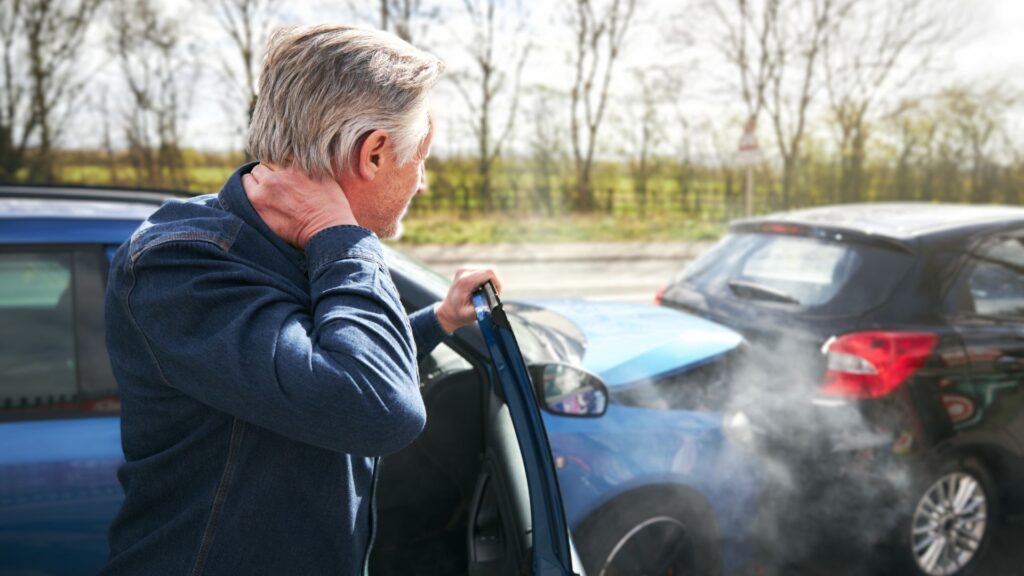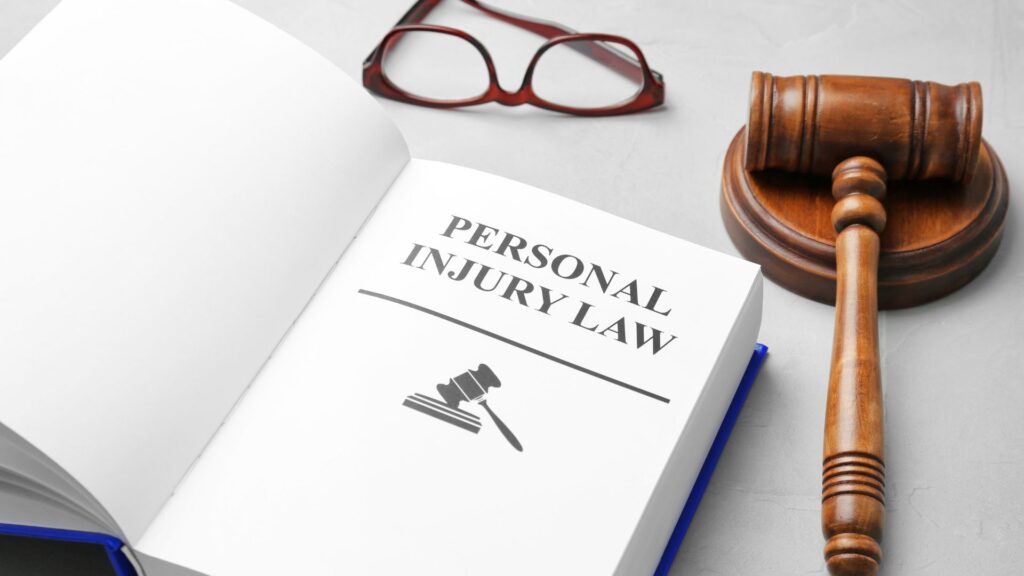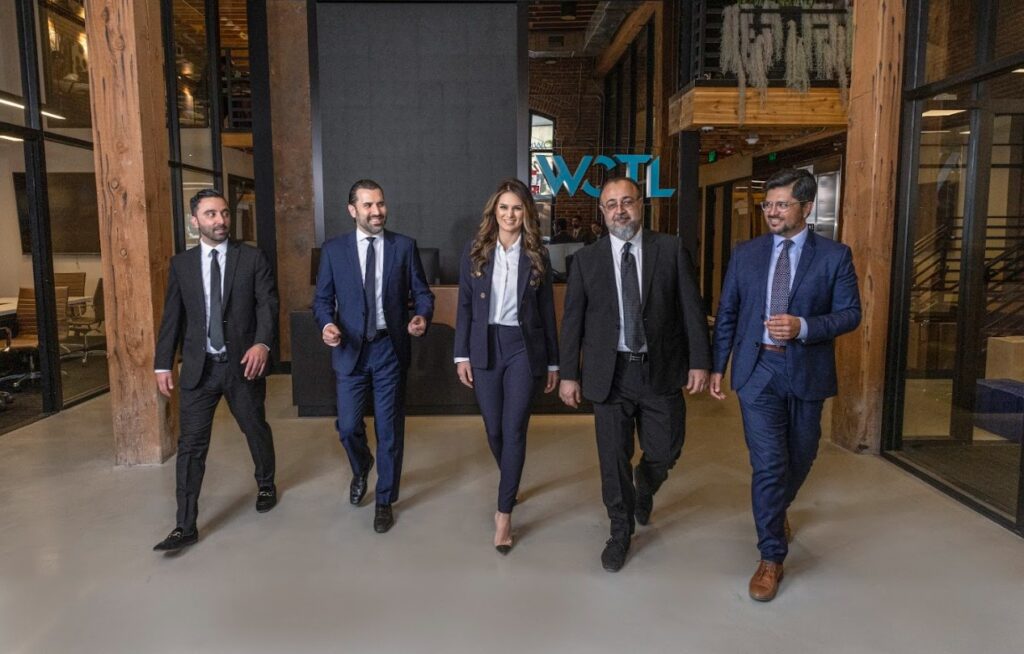Rideshare platforms like Uber and Lyft has forever changed how we can travel from one place to another. With the ability to travel anywhere in the city at the tip of our fingers, many riders can relax and not worry about dealing with intensely congested traffic and driving carefully throughout the city. However, the same thing cannot be said for your rideshare driver. As rideshare drivers work long hours and spend a lot of time on the road, they become more likely to get into a car accident compared to regular drivers. When a rideshare accident does happen, it can be a traumatic and confusing experience to handle on your own.
At West Coast Trial Lawyers, we understand how life can change in an instant following an Uber or Lyft accident. As rideshare services like Uber and Lyft transform transportation in San Jose, they also introduce new risks for passengers, drivers, and others on the road. Whether you’re navigating the streets of downtown or heading home after a long day, accidents involving rideshare vehicles can leave you dealing with serious injuries, mounting medical bills, and an uncertain future.
To many people’s surprise, rideshare accident cases often involve a unique legal process that is different from standard car accidents. From navigating California’s rideshare insurance laws to holding large corporations accountable for their drivers’ negligence, these claims require a legal team with the experience, knowledge, and tenacity to stand up against companies with extensive legal resources.
Don’t face the aftermath of an Uber or Lyft accident alone. Call West Coast Trial Lawyers today at (213) 927-3700 or complete our online contact form for a free, no-obligation consultation and speak with a San Jose Uber accident lawyer.
Legal Representation for Uber & Lyft Accidents in San Jose
At WCTL, we bring over 20 years of experience and a proven track record of success to every case. Led by Harvard-educated Neama Rahmani—one of the youngest graduates in Harvard Law’s history—our team has the expertise and tenacity to stand up to the corporations we once defended. Trusted by celebrities and thousands of clients all over California, we’ve earned a reputation for excellence. With a multilingual staff ready to assist you, available 24/7, and a commitment to “no fees unless we win,” we make it our mission to deliver justice and maximize compensation for every client.
Common Causes of Rideshare Accidents in San Jose
Rideshare accidents, involving services like Uber and Lyft, share many of the same causes as traditional motor vehicle accidents. However, the unique nature of rideshare operations introduces additional risks for passengers, drivers, and others on the road. By understanding the common causes of rideshare accidents, you can gain insight into how negligence or unsafe practices contribute to serious injuries and legal complexities.
Distracted Driving
Rideshare drivers rely heavily on smartphone apps to accept rides, navigate routes, and communicate with passengers—all while driving. This dependency on technology creates significant distractions, including:
- App Notifications: Alerts for ride requests or updates divert attention from the road.
- Navigation Instructions: Constant glances at GPS directions can impair focus.
- Passenger Interactions: Rowdy, intoxicated, or excessively chatty passengers can be just as distracting as app usage.
- Personal Device Usage: Drivers using personal apps while driving can pose additional dangers.
California Vehicle Code § 23123 strictly prohibits handheld cellphone use while driving, but rideshare drivers often find themselves in violation of this law. These distractions not only endanger passengers but also put other motorists and pedestrians at risk.
Drowsy or Fatigued Driving
Rideshare drivers frequently work long shifts or balance multiple jobs, leading to fatigue that impairs reaction times and decision-making. Despite regulations limiting active driving hours for rideshare drivers, such as Uber’s 12-hour maximum, many drivers bypass these limits by working for multiple platforms or alternating shifts between other jobs.
The Federal Motor Carrier Safety Administration (FMCSA) equates driving while sleep-deprived to driving with a blood alcohol level of 0.08, further highlighting the dangers of fatigued driving. For victims of accidents caused by drowsy drivers, filing a claim may involve investigating rideshare companies’ policies and the drivers’ compliance with California labor and safety laws.
Speeding and Reckless Driving
Rideshare drivers often face immense pressure to complete as many trips as possible in a short time, incentivizing unsafe behaviors such as speeding and aggressive driving. Speeding significantly reduces a driver’s ability to control their vehicle and increases the force of impact during a collision, leading to more severe injuries.
Reckless driving behaviors common among rideshare drivers include:
- Tailgating
- Rapid lane changes without signaling
- Ignoring traffic signals or road conditions
Under California Vehicle Code § 22350, drivers are required to maintain a safe speed appropriate for traffic, weather, and road conditions. Rideshare drivers who violate this statute can be held liable for accidents resulting from their reckless behavior.
Driving Under the Influence (DUI)
While Uber and Lyft have strict policies prohibiting drivers from operating under the influence of drugs or alcohol, compliance largely depends on the individual driver. A lack of oversight and monitoring means some drivers may still pose a risk.
California Vehicle Code § 23152 makes it illegal to operate a vehicle with a blood alcohol concentration (BAC) of 0.08 or higher. Victims of rideshare accidents involving intoxicated drivers can seek compensation for their injuries, including medical bills, lost wages, and emotional distress.
Poor Vehicle Maintenance
Rideshare drivers are responsible for maintaining their vehicles between mandatory inspections, however, many neglect basic upkeep due to cost or time constraints. Mechanical failures, such as brake malfunctions, tire blowouts, or transmission issues, can lead to catastrophic accidents and rideshare drivers can be held liable if they were neglectful in their duties to maintain their vehicles.
California Vehicle Code § 24002 states that no vehicle should be operated if it is unsafe or not properly equipped, making drivers liable for accidents caused by poor maintenance. Rideshare companies also have a duty to ensure their drivers meet vehicle safety standards, and failure to enforce this can open them to liability.
Steps to Take After an Uber Accident
If you find yourself involved in an Uber accident, there are several crucial steps to take to ensure your safety and protect your rights. Your safety should be your top priority, but it is important to take the following steps to ensure that your chances of recovering compensation for any injuries that you may have sustained in the accident.
Seek Medical Attention
Assess your injuries and seek emergency medical care if serious injuries are suspected. Even seemingly minor injuries can develop complications, making immediate medical attention crucial. Delaying medical care can worsen your condition and impact your personal injury claim negatively, because opposing counsel will argue that those conditions were derived from another source.
Report the Accident
Report the incident to Uber or Lyft to inform them about the accident and initiate the claims process. Common questions victims have after a rideshare accident typically include queries such as who will pay for the damages and who is responsible for the accident. Proper documentation of the accident ensures that all parties involved are held accountable and can help clarify these questions.
Gather Evidence
Collecting evidence at the accident scene is crucial for establishing liability and supporting your claim. Important information to collect includes Uber driver details, witness contact information, and photographs of the accident scene. Filing an Uber accident claim requires gathering evidence and documenting injuries. Negotiating with insurance companies is also crucial during this process.
Delayed filing can lead to the deterioration of evidence and fading witness memories, impacting the case’s outcome. Therefore, it’s vital to collect as much information as possible immediately after the accident to support your claim effectively.
Compensation for Uber Accident Victims
Uber and Lyft accident victims can receive compensation for economic damages such as medical expenses, lost wages, and non-economic damages like pain and suffering and loss of enjoyment of life. While compensation amounts will vary based on injury severity, having legal representation can facilitate access to necessary medical care without upfront costs until the case is resolved. With that in mind, it is vital that you understand some of the most common damages accident victims can recover in a rideshare accident, so you can make the necessary preparations with your personal injury attorney.
Medical Expenses
Victims can claim reimbursement for medical bills like hospital stays, surgeries, medications, and rehabilitation services. While the compensation amount for medical expenses are influenced by the severity of the injury and insurance coverage limits, it is important to ask for a copy of medical records for injuries derived from a rideshare accident. This way, a personal injury attorney can help you recover those initial costs and get compensation that will cover any future medical expenses that may arise.
Lost Wages
Lost wages covers the income a victim would have earned if not for a rideshare accident injury. This includes both immediate income loss due to the accident and potential future earnings impacted by the injuries. Similarly to medical expenses, a rideshare accident attorney can help recover any initial losses an accident victim has lost in the event of an accident and will fight to cover any future lost wages to ensure that the victim is financially covered until they have made a full recovery.
Pain and Suffering
Pain and suffering accounts for any physical discomfort and emotional distress that is experienced by victims as a result of an accident. Due to the subjective nature of pain and suffering, they are classified under non-economic damages and, as a result, often require expert testimonials in order to prove that they are applicable to the victim.
Understanding Rideshare Accident Liability
Uber accident cases differ significantly from traditional car accidents and as a result, are notorious for being time consuming and complex. They involve multiple parties, such as rideshare drivers, passengers, other drivers, and the rideshare company. Determining liability can be challenging as it depends on various factors, such as whether the driver was engaged in negligent activities while driving.
Uber and Lyft provides liability coverage for bodily injury and property damage, which varies based on whether the driver is active or waiting for a ride request. The employment classification of Uber and Lyft drivers as independent contractors further complicates liability claims, as it limits the level of control Uber or Lyft can exert over its drivers.
Proving Negligence in Uber Accidents
Proving negligence in an Uber accident requires establishing that the driver had a duty of care, breached that duty, and caused damages as a result. This can be particularly challenging due to the shared liability among drivers and the rideshare company, as well as potential disputes regarding fault.
Collecting evidence, such as witness statements, police reports, and photographs of the accident scene, is very important in supporting a negligence claim in Uber accidents. This thorough documentation is necessary to achieve justice and secure compensation for the damages suffered.
Navigating Insurance Claims
Understanding the differences between the transportation network company’s insurance and personal auto insurance is crucial for effective claims. Reporting the incident to law enforcement is also important, especially if injuries or significant damages occur. Notifying both Uber, Lyft and law enforcement ensures proper documentation and initiates the claims process.
Navigating the insurance claims process involves understanding the various coverage options and how they apply to your situation. This includes reporting the accident to Uber or Lyft, negotiating with insurance companies, and potentially dealing with your own auto insurance.
Statute of Limitations for Uber Accident Claims in California
In California, the statute of limitations for personal injury claims, including Uber & Lyft accidents, is two years from the accident date, according to section 335.1 of California’s Code of Civil Procedure. Filing a claim within this two-year period retains victims the right to seek compensation for Uber accident injuries.
However, time limits for filing a claim may vary depending on specific circumstances and locations, but if you do not file claim before the two year mark, then the statute of limitations will take into effect and accident victims will automatically waive their right to recover compensation. The only exceptions to the statute of limitations is unless the victim is a minor, in jail, legally insane, living out-of-state, or disabled. As such, understanding the statute of limitations for filing Uber accident claims ensures you do not lose your right to seek compensation.
How West Coast Trial Lawyers Can Help You Win
If you’ve been injured in an Uber or Lyft accident in San Jose, navigating the legal complexities of these cases can be overwhelming. Rideshare companies and their insurance providers often try to limit payouts to protect their profits. At West Coast Trial Lawyers, our experienced Uber & Lyft Accident Lawyers are dedicated to holding negligent drivers and companies accountable.
We’re here to help you:
- Investigate the accident and determine liability
- Navigate California’s rideshare laws and insurance policies
- Fight for maximum compensation for your injuries
Our team is deeply familiar with the challenges posed by rideshare accidents and knows how to build strong cases that secure the compensation you deserve. From determining liability to negotiating with insurance companies, we’re here to handle your case so you can focus on what truly matters—your recovery.
Contact us today at (213) 927-3700 or fill out our online contact form for a free consultation. Let our San Jose Rideshare Attorneys handle the legal challenges while you focus on healing.













































































